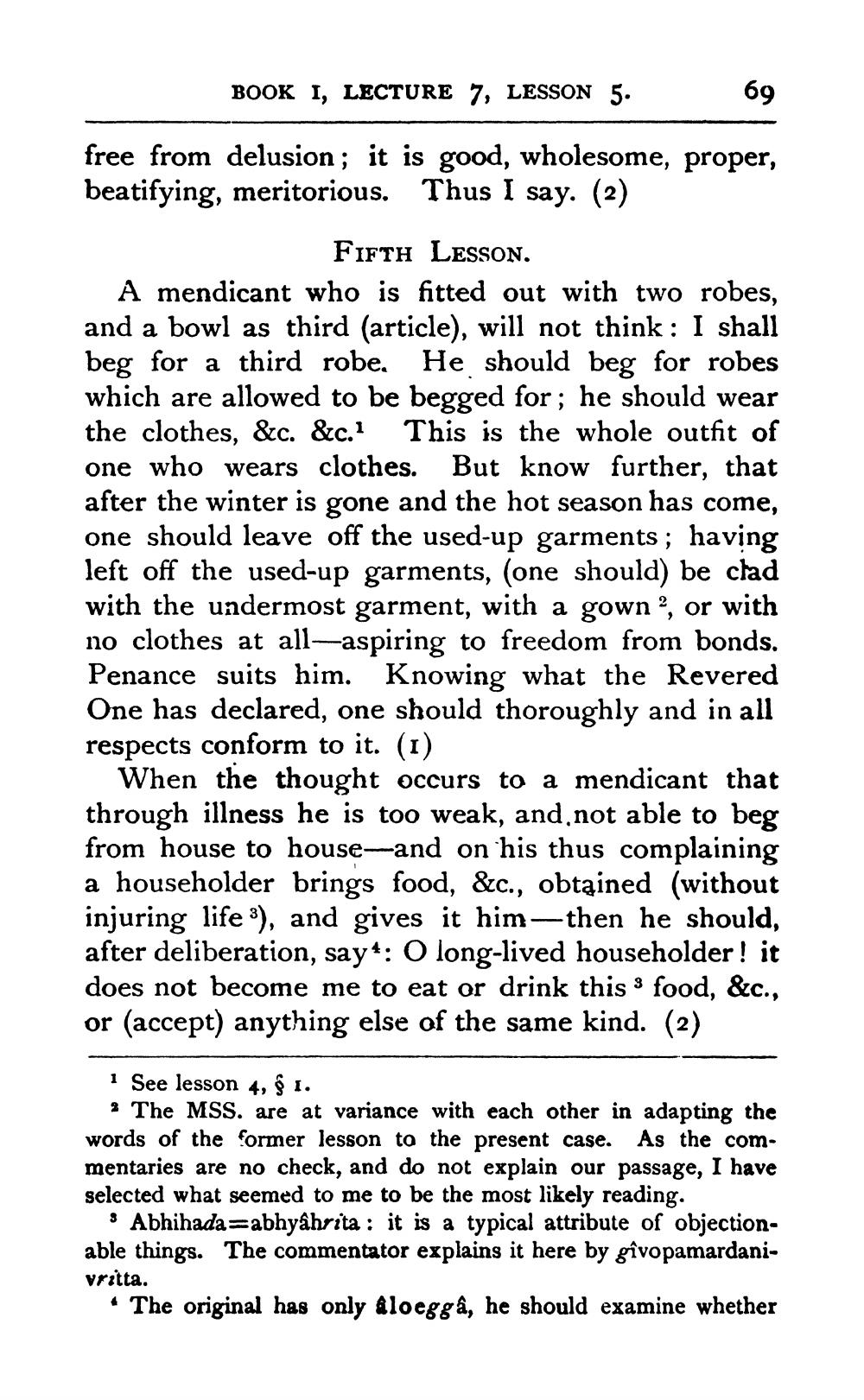________________
BOOK I, LECTURE 7, LESSON 5.
69
free from delusion; it is good, wholesome, proper, beatifying, meritorious. Thus I say. (2)
FIFTH LESSON. A mendicant who is fitted out with two robes, and a bowl as third (article), will not think: I shall beg for a third robe, He should beg for robes which are allowed to be begged for; he should wear the clothes, &c. &c. This is the whole outfit of one who wears clothes. But know further, that after the winter is gone and the hot season has come, one should leave off the used-up garments; having left off the used-up garments, (one should) be clad with the undermost garment, with a gown, or with no clothes at all—aspiring to freedom from bonds. Penance suits him. Knowing what the Revered One has declared, one should thoroughly and in all respects conform to it. (1)
When the thought occurs to a mendicant that through illness he is too weak, and not able to beg from house to house--and on his thus complaining a householder brings food, &c., obtained (without injuring life 3), and gives it him—then he should, after deliberation, sayt: O long-lived householder! it does not become me to eat or drink this : food, &c., or (accept) anything else of the same kind. (2)
I See lesson 4, § 1.
· The MSS. are at variance with each other in adapting the words of the former lesson to the present case. As the commentaries are no check, and do not explain our passage, I have selected what seemed to me to be the most likely reading.
. Abhihada=abhyahrita : it is a typical attribute of objectionable things. The commentator explains it here by gîvopamardanivritta.
• The original has only aloeggâ, he should examine whether




